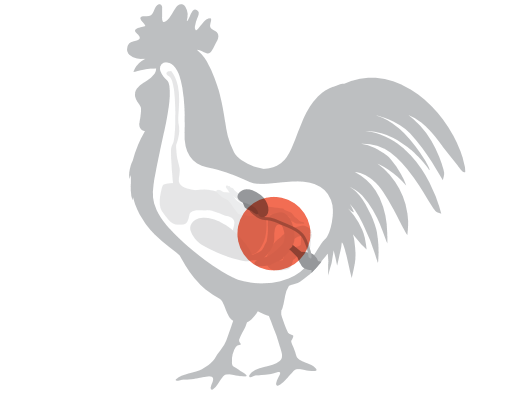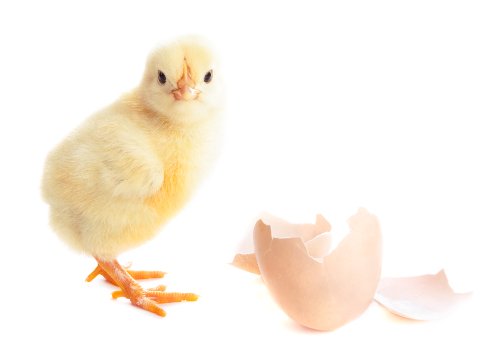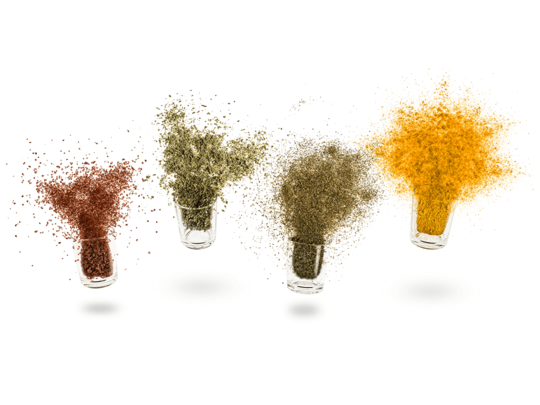Phytogenics for enhancing poultry males' fertility
In recent years, the growing demand for poultry meat has required companies to achieve maximum efficiency in day-old chicks' production. Moreover, this trend has promoted a strong appreciation in the price of chicks in the global market. However, reproductive stocks' management, health, and fertility problems constantly challenge broilers and turkey-breeding companies efforts to reach optimum performance levels.

It is widely recognized that fertility problems are strongly associated with males, even though females may also influence the flock's breeding performance parameters. Therefore, concentrating efforts on actions that improve males' reproductive functionality is recommended. Among the aspects recognized as significantly impairing males' fertility, oxidative stress has the most significant evidence of harm, particularly on semen quality, the viability and functionality of sperm cells, and even the integrity of loaded genetic material inside the sperm. The oxidation is due to the high levels of lipid compounds in the seminal components, which are highly susceptible to attack by free radicals. Furthermore, oxidative stress can also impact the production and excretion of reproductive hormones, especially testosterone. It can consequently affect spermatogenesis, the process by which spermatozoids are formed in the testicular tissues.
The impact of oxidative stress

The scientific literature is relatively abundant on using active ingredients from plants, the so-called phytogenic compounds, to mitigate the harmful effects of oxidative stress on male fertility in different species. Numerous trials with experimental animal models have demonstrated the impact of oxidative stress. In these studies, the addition of phytogenic additives to the diet restored the most critical male-fertility parameters. In addition, positive results in biological markers indicate the reduction of the impact of free radicals.
Did you know?
Phytogenic compounds can have direct antioxidant effects, such as scavenging free radicals by polyphenols or indirectly by stimulating the animals' organism to synthesize higher amounts of endogenous antioxidant substances (glutathione-peroxidase, superoxide dismutase, etc.). Such substances, in turn, guarantee protection against oxidative processes. Certain phytogenic compounds, such as some essential oils and saponins, can also directly affect hormonal regulation and, consequently, spermatogenesis.
The natural solution

Based on extensive and deep knowledge in the universe of phytogenic compounds and their effects on the metabolism of farm animals, we recently launched a natural solution to improve the fertility of breeding males. This well-formulated phytogenic feed additive (PFA) has a unique formulation specially developed to address reproductive issues and control the effects of oxidative stress in this category of breeding males. In its composition, a comprehensive range of essential oils, flavonoids, and saponins, all obtained from natural sources, provide an increase in the oxidative resilience of semen and its components and optimize reproductive hormonal processes.
Scientific validations have proven the PFAs effectiveness in improving the reproductive parameters of breeding males and the females that received semen from males treated with this additive. This solution is a unique and powerful tool to mitigate oxidative stress in breeding males, optimizing the testosterone production in these birds, directly improving seminal quality parameters, and indirectly increasing flock reproductive performance levels.

Roberto Montanhini Neto
Veterinary doctor, with MSc. and Ph.D. in veterinary sciences, and with relevant experience in leading integrations, premix and feed additives companies. With more than 18 years of experience in the Brazilian and international markets, always focused on developing animal nutrition and feed production projects, especially poultry, swine and aquaculture. Has been working for Delacon since 2018, and currently holds the position of Global Unit Lead, Monogastric.











Good work
Quite good to improve and enhance experience and knowledge towards promoting professionalism to fulfill the organization goals.
Roberto from my personal experience and research wha you say makes eminent sense. If you like I can send you some of my compounds for your testing. I am Poultryman studied in the U.S and worked on three continents with poultry farms and into phytogenics for the last 8 years. Thanks.
Gopal